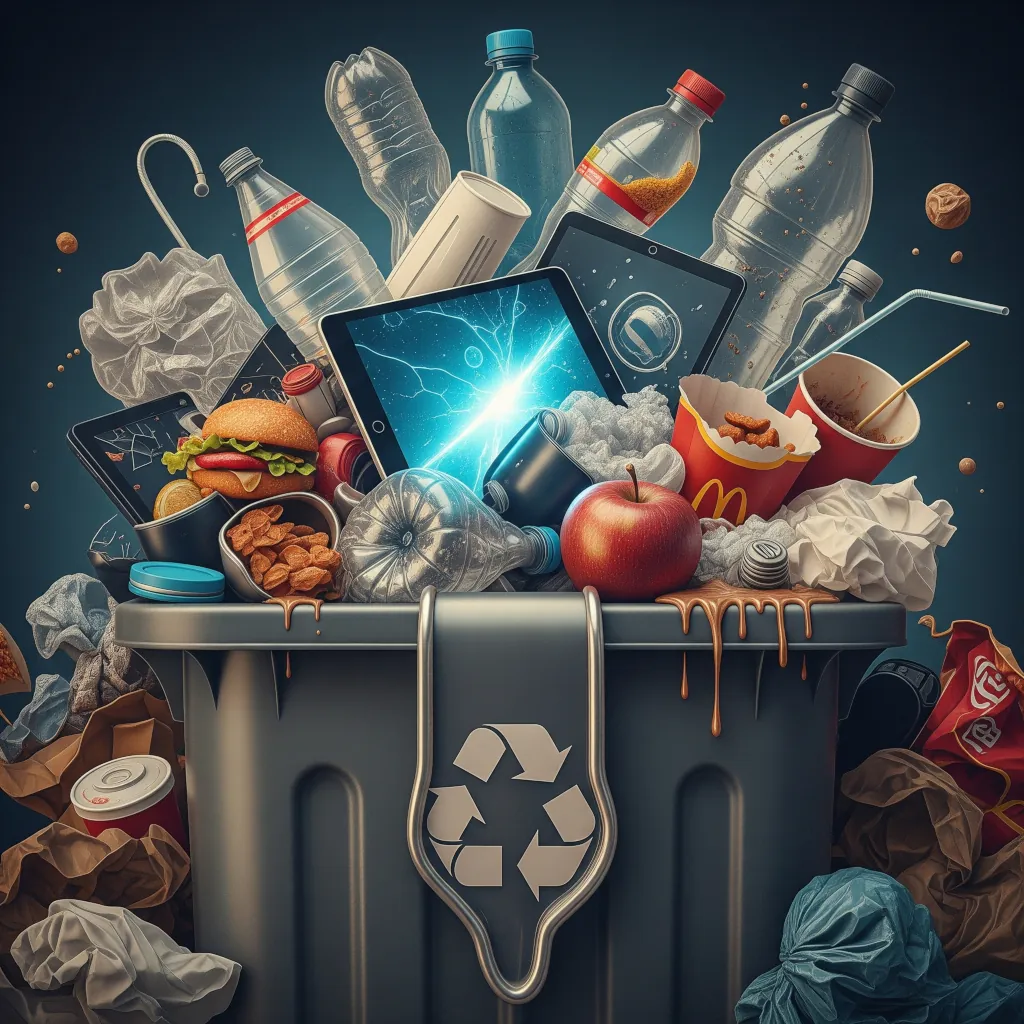THE SECRET WORLD OF THE TRASH CAN: WHAT WASTE TELLS US ABOUT OUR TRUE SOCIETY?

We view the trash can as a simple receptacle for unwanted waste, an endpoint in the consumption cycle. We empty it daily, forget about it, and move on. But what if I told you that behind its lid hides a faithful, uncensored chronicle of our lives? That the waste we produce is an intimate journal of the habits, values, and sometimes uncomfortable secrets of modern society?
The Everyday Archaeology of Waste
Imagine a future archaeologist digging through the layers of our modern waste. What would they discover?
- The Footprint of Consumption: Empty packages of ultra-processed foods, dozens of fast-food delivery containers, clothes worn a few times and then discarded. All speak of a society obsessed with instant gratification and over-consumption, where value is often confused with quantity, and quality is sacrificed on the altar of fleeting novelty.
- Ghosts of Technology: Old phones, tangled cables, broken gadgets – a silent collection of rapidly obsolete technology. These “ghosts” of technological progress would show a society caught in an endless race of upgrades, where rapid innovation generates a mountain of toxic electronic waste, a true testament to our obsession with “new.”
- Secrets of Health (and Illness): Prescription medicine packaging, but also impulse-bought “miracle” supplement bottles. Medical waste, even household items, would paint a picture of our constant struggle with chronic diseases, anxiety, and an often desperate search for well-being through quick fixes.
- The Illusion of “Recycling”: Tons of plastic, paper, and glass, collected “separately,” but whose final destination often remains uncertain. The trash can would tell us that, although we like to believe we are responsible, the recycling system is often a complex illusion, a way to absolve ourselves of guilt without truly solving the fundamental problem of overproduction.
What Does the Silence of Trash Tell Us?
Beyond the objects themselves, the trash can also speaks of a certain social silence. About what we hide, about what we are ashamed to admit.
- The Uncomfortable Truth of Waste: Every discarded piece of food is a testament to food waste, a stark contrast to hunger problems in other parts of the world. Waste becomes an indicator of unconscious opulence.
- Hidden Addictions: Even empty packaging from certain products (alcohol, excessive sweets, tobacco) can indicate addictions and personal struggles, invisible to society, but clearly present in the waste stream.
- Disconnection from Reality: The way we manage (or don’t manage) waste speaks volumes about our relationship with the environment. A superficial approach to waste reflects a profound disconnection from the consequences of our actions, an inability to see the link between a discarded package and a polluted ocean.
The Trash Can as a Moral Compass
Perhaps it’s time to view the trash can not as a bottomless pit, but as a moral compass. What we throw away tells us not only what we consume, but also what values we prioritize, what we ignore, and what consequences we are willing to accept for our lifestyle.
A careful investigation of the trash can could reveal truths about our society that we often prefer to ignore. It would force us to ask ourselves: Are we masters of our consumption or its slaves? What do we truly desire, and what price do we pay for it?
Perhaps true cleanliness doesn’t begin in the trash can, but in our consciousness, in the way we choose to produce, consume, and discard.
What other secrets do you think the trash can would reveal about our society if we were willing to truly look? How can we change the waste narrative into one of responsibility and true sustainability?